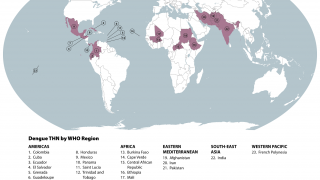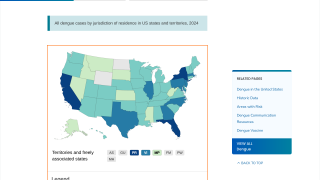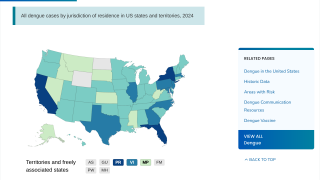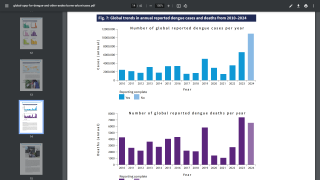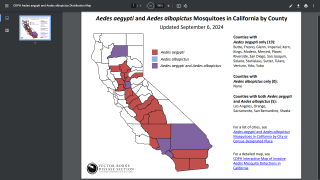Starving To Increase Dengue Vaccine Effectiveness

The specific reduction in the intake of proteins or amino acids (AA) offers enormous health benefits, such as increased life span, protection against age-associated disorders, and improved metabolic fitness and immunity.
Metabolic control of the immune system is a crucial requirement for the regulation of cell survival and the development of immunity.
Furthermore, cells respond to conditions of AA starvation by activating the amino acid starvation response (AAR).
In a new study published on November 12, 2019, vaccine researchers showed that mimicking AAR with halofuginone (HF) enhanced the magnitude and affinity of neutralizing, antigen-specific antibody responses in mice immunized with dengue virus envelope domain III protein (DENVrEDIII), a vaccine candidate against the Dengue Fever virus.
HF enhanced the formation of germinal centers (GCs) and increased the production of the cytokine IL-10 in the secondary lymphoid organs of vaccinated mice.
Furthermore, HF promoted the transcription of genes associated with memory B cell formation and maintenance and maturation of GCs in the draining lymph nodes of vaccinated mice.
The increased abundance of IL-10 in HF-preconditioned mice correlated with enhanced GC responses and may promote the establishment of long-lived plasma cells that secrete antigen-specific, high-affinity antibodies.
Thus, these data suggest that mimetics of AA starvation could provide an alternative strategy to augment the efficacy of vaccines against dengue and other infectious diseases.
Dengue vaccine news
- Red Cross Appeals For $2.9 Million To Confront Central America’s Dengue Outbreaks
- Travel Alert Reissued Regarding Dengue Outbreaks
Although this new work demonstrates the feasibility of using HF to enhance vaccine responses, the mechanisms by which AAR promotes GC formation remain poorly understood and merit further investigation.
Furthermore, the detailed study of the T cell dependence of the effects of HF on antigen-specific antibody responses could be the next step.
However, the data from this study demonstrated that AAR mimicry–based nutraceuticals such as HF are potent agonists of vaccine responses poised for further development against human diseases, concluded these researchers.
Innovative research such as this study is needed since Dengue is common in more than 100 countries around the world. Forty percent of the world’s population, about 3 billion people, live in areas with a risk of dengue, says the US Centers for Disease Control and Prevention (CDC).
Dengue is caused by 1 of 4 related viruses. For this reason, a person can be infected with a dengue virus as many as four times in his or her lifetime.
In the USA, there were 865 Dengue cases confirmed by the CDC. The state of Florida has reported 286 travel-related dengue cases, and 12 locally acquired cases, as of November 6, 2019.
Dengue viruses are spread to people through the bite of an infected Aedes species (Ae. aegypti or Ae. albopictus) mosquito. These mosquitoes also spread Zika, chikungunya, and other viruses.
Regarding prevention, there is an approved vaccine available for the dengue virus.
The Dengvaxia became the first vaccine approved in the USA for the prevention of dengue disease in people ages 9 through 16, who have laboratory-confirmed previous dengue infection, and who live in endemic areas caused by all dengue virus serotypes.
And, on November 7th, a phase 3 clinical trial reported Takeda's TAK-003 tetravalent vaccine candidate was found effective and appeared safe when tested with children and adolescents.
The CDC says before being vaccinated, inform your healthcare provider if you have dengue symptoms or live in or have recently traveled to an area with risk of dengue.
Dengue news published by Precision Vaccinations
Our Trust Standards: Medical Advisory Committee
- Amino acid starvation enhances vaccine efficacy by augmenting neutralizing antibody production
- Amino acid starvation enhances vaccine efficacy by augmenting neutralizing antibody production
- Which Dengue Vaccine Approach Is the Most Promising, and Should We Be Concerned about Enhanced Disease after Vaccination?
- CDC: Dengue




